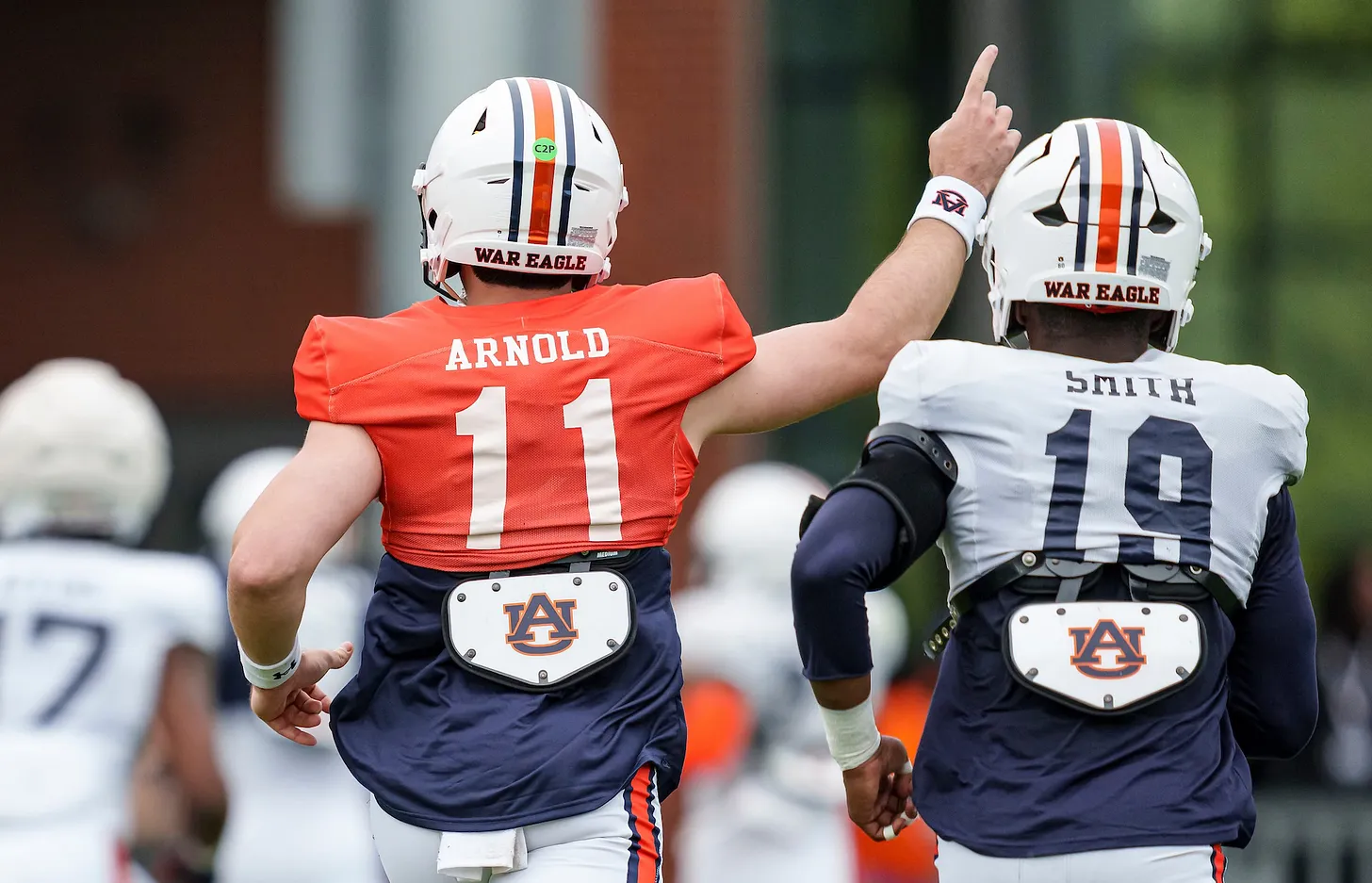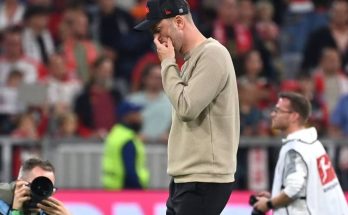Every spring and summer, as SEC media days inch closer and fans begin to tally up potential wins and losses on imaginary schedules, a familiar question starts to surface in Auburn circles: What will progress look like this year? For Auburn football in 2025, it’s a particularly pressing question, one that goes beyond box scores or stat sheets and touches the core of where the program stands in the national pecking order — and where it wants to be.
To understand what qualifies as progress, we first need to step back and examine the state of Auburn football as it enters year three under Hugh Freeze. The 2024 season was, at best, uneven. There were flashes of improvement, particularly in how the defense kept the Tigers competitive in several key games, and how the offense—though inconsistent—showed more rhythm and purpose than in recent memory. Yet the final record didn’t inspire much optimism: hovering around .500 and suffering through losses that highlighted a lingering gap between Auburn and the top-tier SEC programs.
This is not unfamiliar territory. Auburn has historically been a program defined as much by its swings as by its standards. National titles and coaching changes. Unranked upsets and Heisman contenders. In one breath, a breakthrough; in the next, a rebuild. That cyclical nature makes measuring “progress” trickier than it sounds. Is it simply about wins and losses? Or is it something deeper—recruiting momentum, player development, system buy-in?
For 2025, progress won’t be defined solely by a nine-win season, though that would certainly quiet critics and energize donors. It’s about visible and tangible signs that Auburn is no longer playing catch-up to Alabama, Georgia, and LSU, but rather building the infrastructure and identity to compete with them consistently.
Let’s start with the most obvious metric: wins. The 2025 schedule is no picnic, because this is the SEC, and with Oklahoma and Texas fully integrated into the conference slate, there are no easy weeks. Auburn fans are used to this, but that doesn’t make the gauntlet any less daunting. For progress to be evident, Auburn has to win the games it should win—no more head-scratchers against mid-tier teams where the Tigers come out flat and disorganized. And it has to start competing, truly competing, against the heavyweights.
Beating Alabama or Georgia—or even pushing one of them to the wire—would signal something real. Last year’s Iron Bowl ended in heartbreak, as so many have, but it showcased how close Auburn can be when things click. The key is closing that gap for four full quarters. Moral victories don’t count in the SEC, but for a program still rebuilding trust with its fanbase and itself, narrowly losing a slugfest to a top-five team can carry weight—if it leads to actual wins the following week. Freeze and his staff need a signature win in 2025, something that says, “We’re not just rebuilding anymore. We’re arriving.”
Progress will also be visible in quarterback play. Auburn hasn’t had consistency under center since Jarrett Stidham’s 2017 campaign, and that inconsistency has bled into every other phase of the offense. If the Tigers can identify and develop a clear-cut starter early in the season—one who not only protects the ball but commands the offense—then fans and analysts alike will finally see a trajectory worth following. Whether it’s a returning player or a transfer addition, the quarterback must show growth in reading defenses, executing the RPO game, and making big throws on third and long. It’s not just about who has the strongest arm—it’s about who elevates the offense.
Of course, a quarterback is only as good as the line in front of him and the playmakers around him. Auburn’s offensive line showed signs of cohesion late last season, but depth and athleticism still lag behind SEC bluebloods. The 2025 season will be a proving ground for the unit’s development under Freeze’s staff. Have the recruiting efforts from the last two cycles paid off? Has the transfer portal yielded experience and toughness, or just short-term band-aids? If Auburn’s front five can hold up against elite defensive fronts, that alone will be a marker of real, measurable progress.
Speaking of playmakers, the running back room remains a strength. If 2025 sees continued breakout performances from returning backs or emerging stars, then Auburn’s ground game should be a stabilizing force. But the passing game can’t remain dormant. Whether it’s the development of young wideouts or success in the portal, the Tigers need dynamic receivers who can stretch the field and create separation. Auburn has been a run-heavy program for years, but to compete with the elite in today’s game, balance is non-negotiable.
On the other side of the ball, progress will be judged by physicality and disruption. Auburn’s defense kept them in several games last year, but it struggled to consistently pressure the quarterback and create turnovers. A good SEC defense makes you uncomfortable; a great one dictates the terms. The Tigers need to take the next step defensively by establishing a dominant edge rusher, improving linebacker play in space, and turning bend-but-don’t-break into bend-and-then-break-you. An opportunistic defense can flip field position, swing momentum, and mask offensive shortcomings. If Auburn’s defense can become a top-four unit in the conference statistically, it will be because of improved depth, conditioning, and coaching—a trio that would, again, signal forward movement.
Recruiting, while not directly influencing the 2025 win-loss column, remains a powerful undercurrent. The 2025 class will be Freeze’s third full cycle, and by now, fans expect to see the results of his recruiting pitch. Are they flipping blue-chip prospects? Are they winning battles against rivals not just in Alabama, but across Georgia, Florida, and Texas? A top-10 class, especially one rich in offensive linemen and defensive backs, would suggest that Freeze’s message is resonating and that Auburn isn’t just trying to keep up with the Joneses—it’s attempting to surpass them.
Culture is another piece of the puzzle, though harder to measure with a stat sheet. A team that plays disciplined football, limits penalties, communicates on defense, and avoids sideline blowups or motivational letdowns—that’s a team with internal buy-in. Freeze’s background is complicated, but his strength has always been in building rapport and belief. By 2025, that culture should be cemented. The locker room should reflect his values, his expectations, and his tempo. When you watch Auburn play, you should see an identity, not just a collection of individual talents.
Special teams, often overlooked, can swing close games and expose cracks in focus. Last season, Auburn had a mixed bag—some reliable kicking, some shaky returns, and a few too many breakdowns in coverage. If the Tigers shore up that third phase in 2025 and create some game-changing moments—blocked punts, return touchdowns, clutch field goals—it will go a long way toward flipping those one-score losses into wins.
Fan engagement is perhaps the most intangible, yet most telling, sign of progress. Jordan-Hare Stadium is one of the loudest, most electric venues in college football when the fan base believes. If 2025 sees Auburn fans pouring into the stadium with excitement rather than obligation, if the energy is one of expectation rather than resignation, then Freeze and company are doing something right. The Auburn family doesn’t demand perfection—they demand pride, competitiveness, and the sense that every game matters.
In the end, progress in 2025 might look like an 8-4 regular season with one major upset, a bowl win, and a recruiting class that cracks the top 10. It might mean finishing second in the SEC West—if divisions still exist by then—or simply being the team nobody wants to play in November. It might not make national headlines, but it would be a clear step forward from the recent past.
Auburn is not a program content with mediocrity, nor should it be. But it is also a program that has learned, painfully at times, that shortcuts don’t lead to sustainable success. Hugh Freeze’s job in 2025 is not to win a national title. It’s to restore belief, forge an identity, and put Auburn back on a path where national titles become possible again. That’s the kind of progress Auburn fans deserve. That’s the kind of progress that matters.



